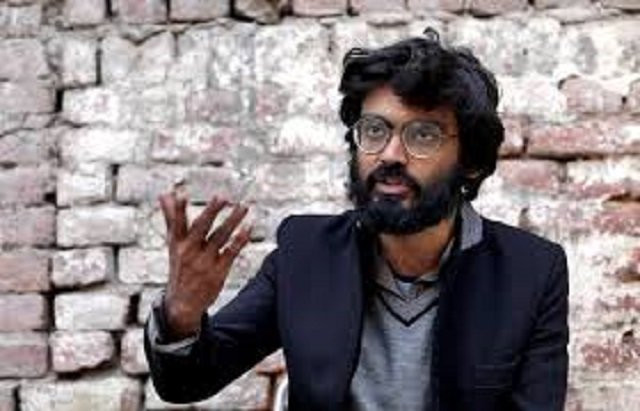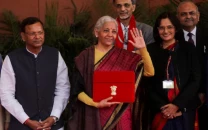Muslim protest organiser arrested on sedition charges in India
'They want to discredit educated Muslims who speak up', says Sharjeel Imam

Sharjeel Imam, a student and a former co-organiser of a sit-in protest against a new citizenship law, speaks during his interview with Reuters in New Delhi, India December 22, 2019, in this screen grab taken from a video footage. PHOTO: REUTERS
The 31-year-old history student further angered nationalists in the ruling Bharatiya Janata Party (BJP) with what they said was a seditious call for the restive northeastern region of Assam to be “cut” from the rest of the country.
Last week, Sambit Patra, a BJP spokesperson, described Imam’s comment as a call for “open jihad”. The BJP has sought to depict him as a dangerous rebel in national media and in party rallies ahead of a state election in New Delhi on February 8.
Speaking to Reuters shortly before he was arrested in the eastern state of Bihar, Imam, a Muslim, said he had only called for railway and road links to Assam to be disrupted as part of the ongoing campaign of protests against the citizenship law.
Imam also said the BJP was trying to vilify him in order to discredit the largely leaderless protest movement ahead of the Delhi state election.
“They want to discredit educated Muslims who speak up,” said Imam, a student at Delhi’s Jawaharlal Nehru University, known for its leftist activism and opposition to the BJP government.
Indian govt’s anti-Muslim agenda condemned
Police officer Rajesh Deo said Imam had been found after a three-day search in Bihar and would be moved to Delhi to face charges of sedition.
In a statement, Imam’s lawyers said he was fully cooperating with the investigation.
The citizenship law aims to fast-track Indian citizenship for non-Muslim minorities from three neighbouring countries.
Many Indians say the law is discriminatory against the country’s large Muslim minority and violates the country’s secular constitution.



















COMMENTS
Comments are moderated and generally will be posted if they are on-topic and not abusive.
For more information, please see our Comments FAQ